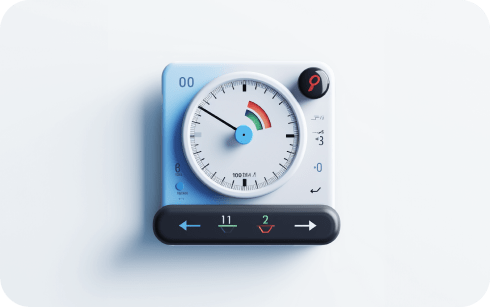
Disponibilité 24h/24 et 7j/7
Les chatbots offrent un support client 24h/24, améliorant la disponibilité du service.
Les chatbots, alimentés par les progrès de l'Intelligence Artificielle (IA), du traitement du langage naturel (NLP) et de l'automatisation sont des entités numériques conçues pour imiter des conversations de type humain. Ces applications logicielles avancées dialoguent avec les utilisateurs humains dans leur langage naturel, comprennent des requêtes complexes et exécutent des tâches efficacement. En combinant la puissance de l'IA et de l'automatisation des processus, les chatbots sont devenus de plus en plus sophistiqués. Un exemple concret: les chatbots de service client qui peuvent aider les utilisateurs à suivre leurs commandes, en fournissant des réponses instantanées et automatisées qui simulent une interaction transparente et humaine, le tout sans intervention humaine.


Les chatbots offrent un support client 24h/24, améliorant la disponibilité du service.

Ils traitent plusieurs demandes simultanément, augmentant ainsi l'efficacité opérationnelle.

Les chatbots réduisent le besoin de grandes équipes de service client.

Ils fournissent des réponses immédiates, améliorant ainsi l'expérience client.

Les chatbots recueillent des informations précieuses sur les clients pour la veille économique.

Ils garantissent une qualité de service uniforme, dépourvue d'incohérences humaines.












Les chatbots sont omniprésents dans divers secteurs, révolutionnant les interactions et les services. Dans le secteur bancaire, les chatbots prennent en charge les demandes de renseignements sur les comptes, aux transactions et aux conseils financiers, améliorant considérablement l'expérience client. Le secteur de l'hôtellerie les utilise pour gérer les réservations, fournir des informations sur les voyages et proposer des recommandations personnalisées. Dans l'administration fiscale, les chatbots sont utilisés pour répondre aux questions liées aux impôts, guider les utilisateurs dans les processus de dépôt et fournir des mises à jour sur l'état des remboursements. Ils sont également répandus dans des secteurs tels que la santé pour la prise de rendez-vous, la vente au détail pour l'aide aux achats et le service client dans divers secteurs pour traiter les demandes courantes, démontrant ainsi leur large applicabilité à l'ère numérique actuelle.















Robotic Process Automation (RPA) greatly benefits from advancements in Artificial Intelligence (AI). While RPA is excellent at following rules-based processes, AI provides the capability for RPA bots to learn, adapt, and make decisions, enhancing their functionality. AI-powered cognitive capabilities like Natural Language Processing (NLP), Machine Learning (ML), and Computer Vision enable bots to understand and respond to text or voice commands, learn from historical data, and recognize images, respectively. For instance, in customer service, AI-powered RPA can analyze customer sentiments in real-time, allowing bots to handle customer complaints and queries more effectively, delivering personalized responses and improving overall customer experience.
